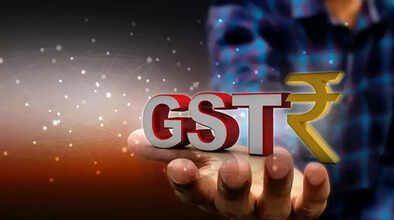New GST Rates: A ₹5 biscuit is now ₹4.47, and a ₹2 shampoo is now ₹1.77; GST relief, but this trouble has come..

Just imagine… You went to a shop, paid 5 rupees, and bought a packet of biscuits. But instead, you got a packet worth 4 rupees. The problem is how the shopkeeper will return the remaining 53 paise? The same is true for packets of toffees, shampoos, and chips. A 2-rupee shampoo now costs 1 rupee. 77 paise, and a 1-rupee toffee costs 88 paise.
Sounds strange, doesn't it? But all this has started with the new GST rates. Things have become a little cheaper, and customers have some relief. But a new problem has arisen. Now the question is, what will happen to the remaining money? Is this a savings or a headache? How will transactions happen now? Companies have different opinions on this matter.
Will you pay through UPI, or will you buy a larger packet?
The new GST rates have had the greatest impact on biscuits like Parle G, priced at 5 and 10 rupees. Because a small pack that was available for ₹5 for more than two decades now costs ₹4.47. Mayank Shah, Vice President of Parle Products, says there was some initial difficulty, but customers will either pay via UPI or buy larger packs. He says the government needs clarity on whether companies can pass on the benefits by increasing product weight instead of reducing prices.
Cadbury-Bournvita maker's opinion
Mondelez, the maker of Cadbury and Bournvita, has also reduced prices after the new GST rates were implemented. A pack that used to cost ₹30 is now available for ₹26.69. A ₹10 Oreo biscuit packet has become ₹8.90. Chocolates like Gems and Five Star, favorites of children and adults alike, are now available for ₹17.80, down from ₹20. Regarding this, the company has clarified that the new MRP includes the benefit of GST, and dealers will have to pass this discount on to customers.
Nestle has reduced prices and also increased the weight!
Nestle has also reduced prices and increased the weight of some products. Vegetarian flour noodles, which were previously priced at ₹30, are now available for ₹28. A packet of Maggi noodles, which was ₹120, is now available for ₹116. However, the company has increased its weight from 560 grams to 600 grams. Similarly, a kilogram of Maggi ketchup, which was ₹190, is now available for ₹178. KitKat, which was ₹35, is now available for ₹30.
'Strange pricing' has become a new problem for the industry. FMCG companies say that this 'strange pricing' has become a challenge for them. It will be difficult to explain figures like ₹4.47 or ₹1.77 to customers. FMCG experts say the industry will reduce prices in the short term, but will eventually return to the old prices by increasing product weight. This is because there is a strong demand for 5, 10, and 20 rupee packets in the Indian market, and even the largest companies will not want to compromise on this.
Shampoo sales account for 79%, biscuits 64%, chocolate 58%, and snacks and toothpaste 44% and 29%, respectively.
This means that customers still prefer smaller packets. Therefore, companies face the challenge of simplifying prices while still passing on the benefits of GST to customers.
What is the company's strategy now?
Sushil Kumar Bajpai, President of RSPL Group, says they have reduced their stock prices by 13% to ensure that customers receive the full benefit. However, he also says that managing these unusual prices will be difficult and new strategies will have to be adopted in the future.
It's worth noting that the new GST rates have brought about a major change in the FMCG sector. While everyday items like biscuits, snacks, shampoos, and chocolates have become cheaper, the prices are difficult for ordinary consumers to calculate and understand. Currently, companies are awaiting clarification from the government. In the future, either the weight of the packs will increase or the old, rounded prices will return.
Disclaimer: This content has been sourced and edited from Dainik Jagran. While we have made modifications for clarity and presentation, the original content belongs to its respective authors and website. We do not claim ownership of the content.

